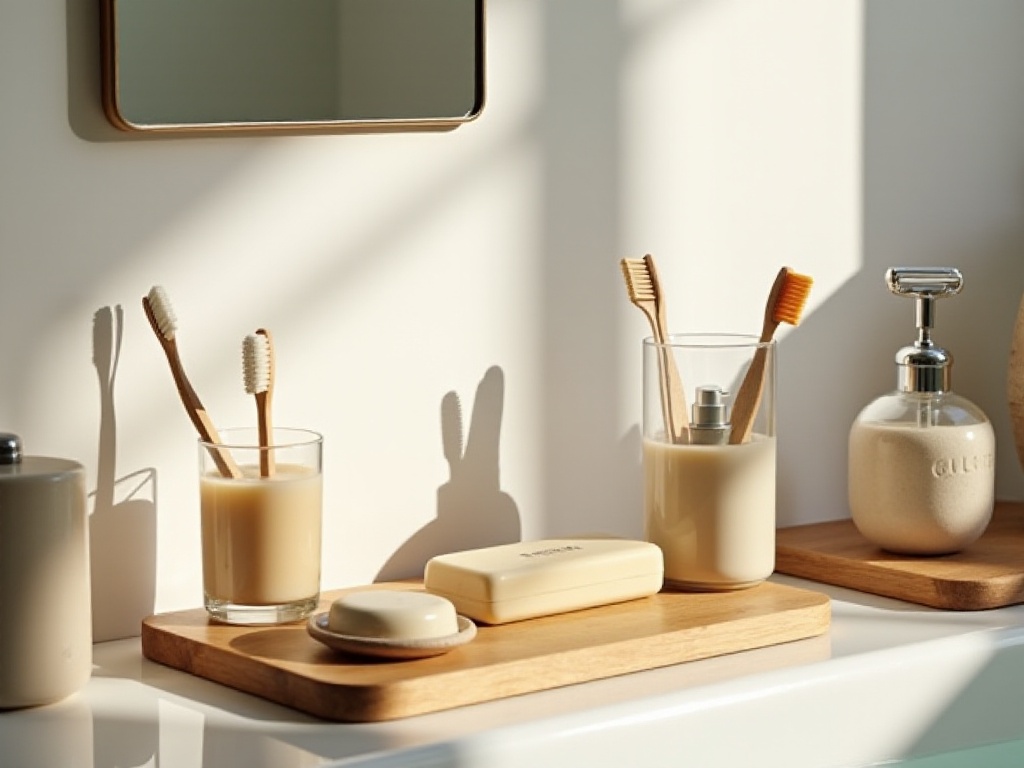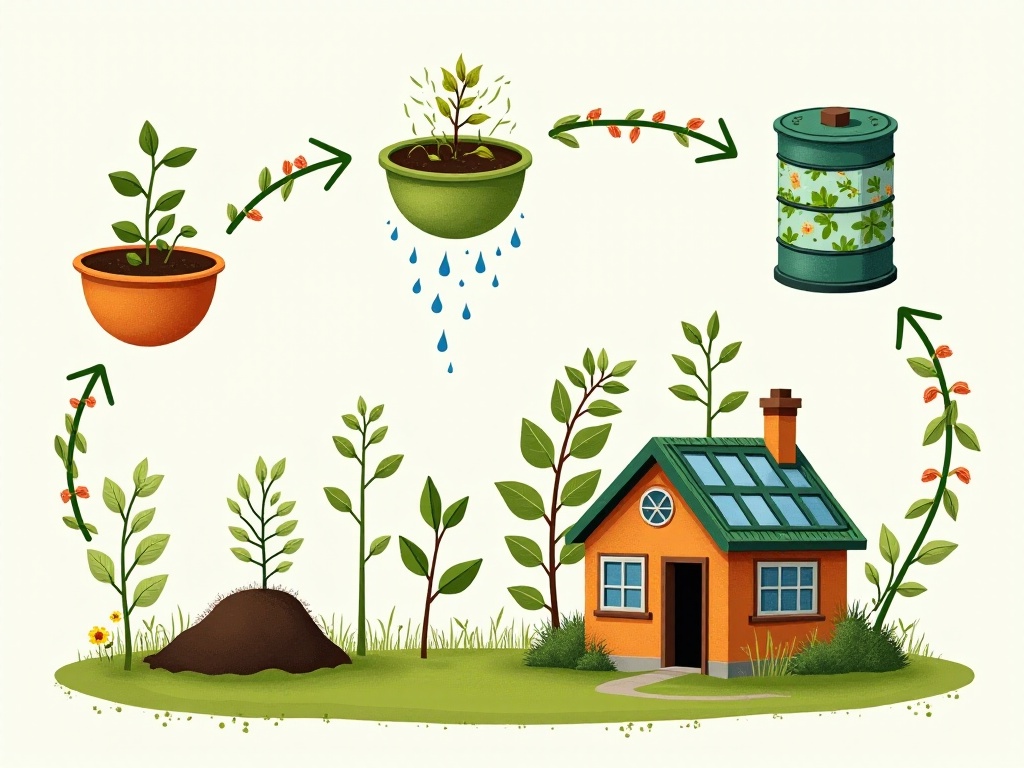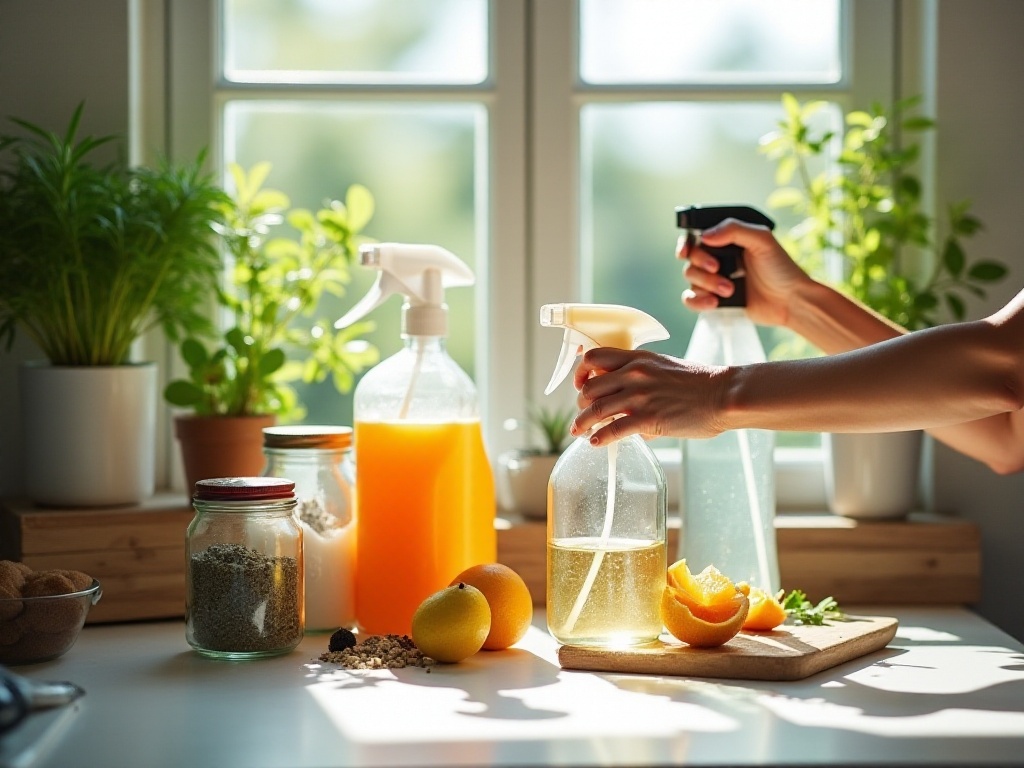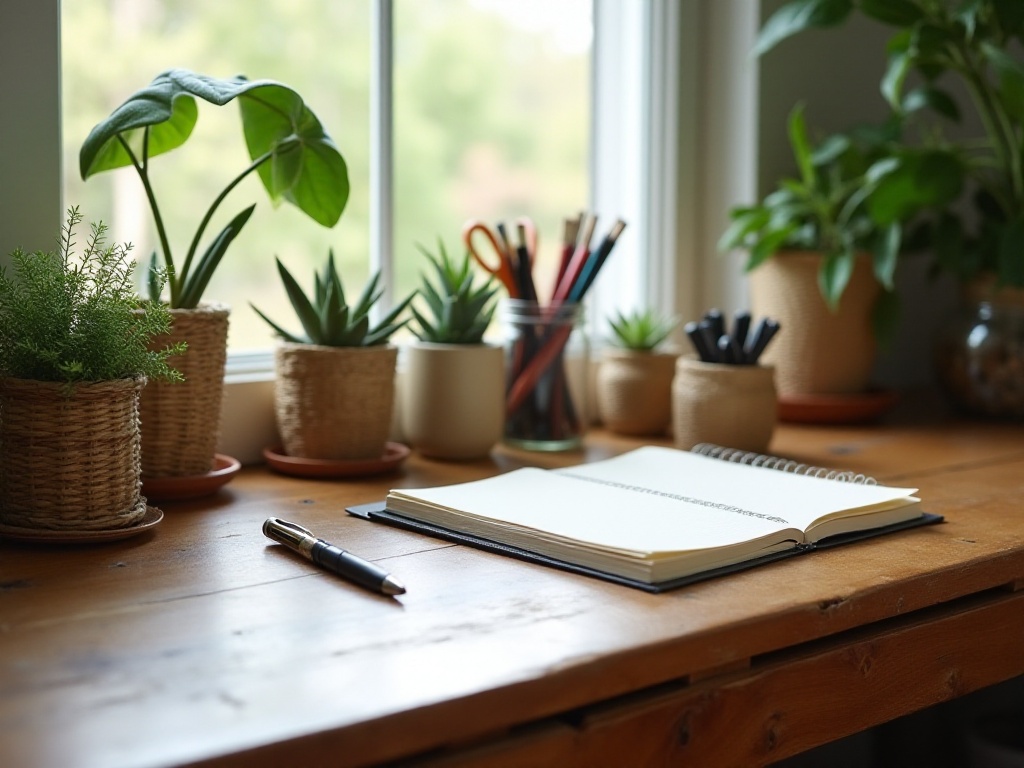Introduction
While organizing my room at home recently, I discovered many empty glass jars piled up in the corner - used coffee jars, jam bottles, honey containers, and even some imported olive oil glass bottles. Looking at this collection of glassware, I had a sudden inspiration: these items that looked like trash could potentially be transformed into practical and aesthetically pleasing storage solutions. And so began my impromptu zero-waste lifestyle transformation journey, which brought me surprising and touching discoveries along the way.
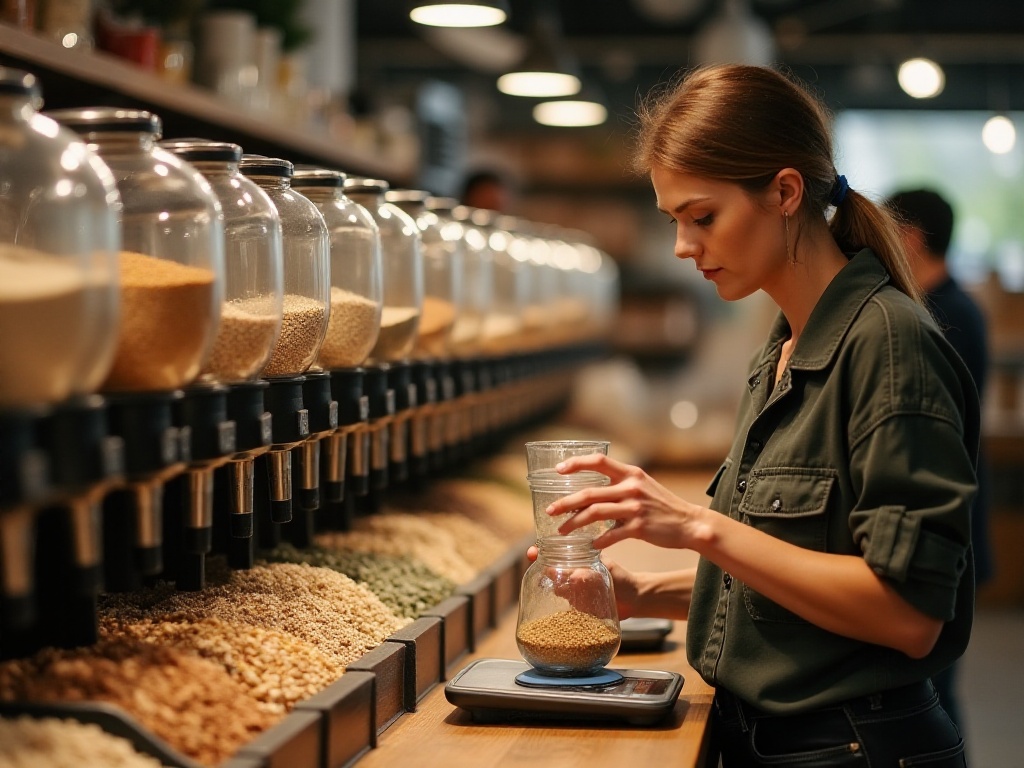
Awareness Upgrade
Did you know? According to the latest environmental data, an average household in our country generates up to 400 kg of domestic waste annually - this number shocked me! What's more distressing is that at least 40% of this waste is completely reusable. Just imagine, if each of us paid more attention to waste in our daily lives, couldn't we significantly reduce the burden on our planet?
These statistics made me seriously consider: why do we generate so much waste? Is there something wrong with our lifestyle? After thorough research, I discovered that the root of the problem often lies in our consumption mindset and living habits.
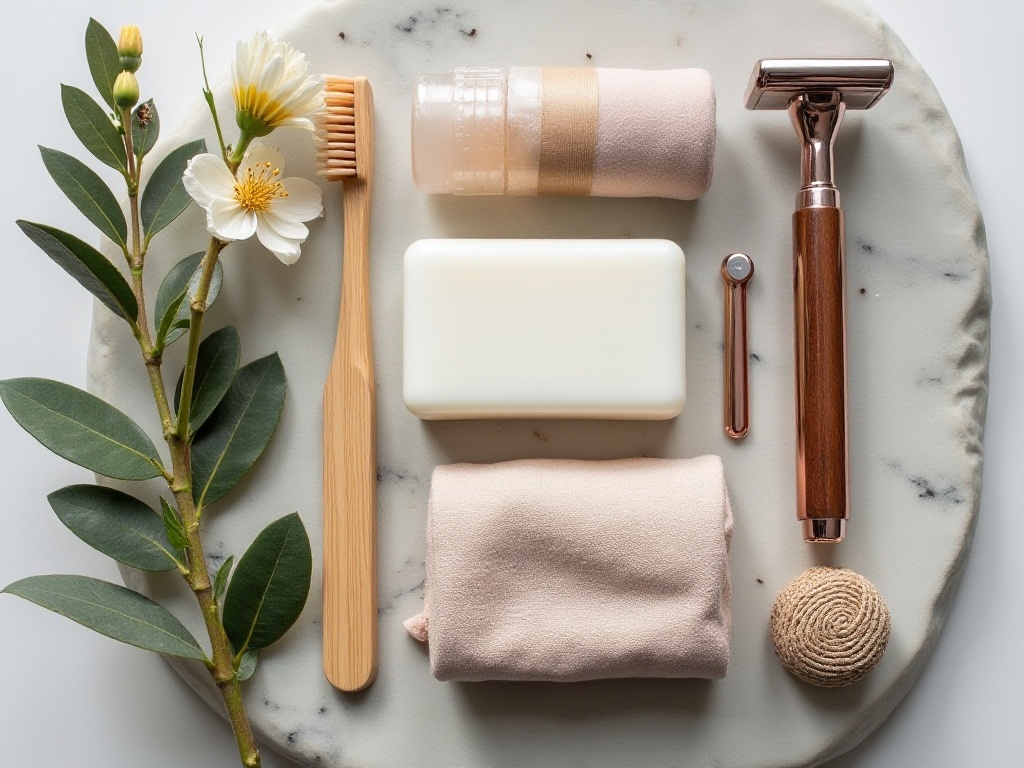
Shift in Consumer Mindset
To be honest, I used to be a shopping addict, brainwashed by various "buy it, buy it" recommendations, with my living room perpetually filled with delivery boxes. Until one day, I did the math and discovered that packaging costs alone from deliveries last year amounted to nearly 1000 yuan, not including disposable packaging boxes. More frightening is that according to statistics from an e-commerce platform, nationwide courier packaging consumption reached 9.3 billion units in 2023 - what does this mean? If these boxes were laid flat, they could probably circle the Earth several times!
This alarming number made me realize that our impulsive consumption not only empties our wallets but also adds a heavy burden to Mother Earth. So I began to reflect: do we really need to buy so many things? Are those so-called "necessities" really necessary?
As I delved deeper into environmental knowledge, I discovered that many daily items could be replaced with more environmentally friendly alternatives. For example, disposable facial wipes can be replaced with washable towels; disposable plastic beverage bottles can be replaced with reusable thermal cups; and shopping at supermarkets can be done with eco-friendly bags and containers, saving money while contributing to environmental protection.
Action Plan
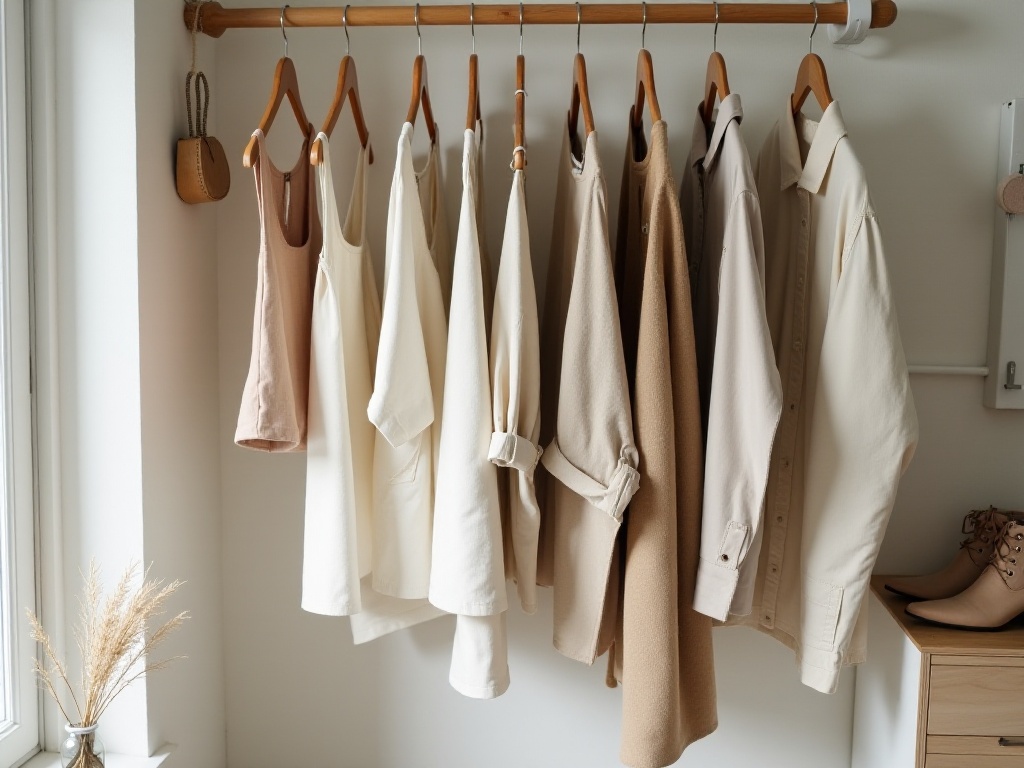
Daily Transformation
Having decided to change, I started with the most basic shopping habits. I prepared a set of "eco-friendly shopping equipment": two large canvas shopping bags, several sealed containers of different sizes, and a small portable cloth bag. These items become my standard configuration every time I go to the supermarket.
You might not know that a regular plastic bag takes exactly 450 years to completely decompose in the natural environment, while a quality canvas shopping bag can be used over 1000 times. By calculation, using canvas bags instead of plastic bags twice a week can reduce plastic bag usage by over 100 bags per year. This may seem like a small change, but if more people join in, the impact would be amazing.
Besides shopping bags, I pay special attention to buying bulk goods. Rice, flour, and nuts from the supermarket can all be carried in my own sealed containers, which not only saves packaging fees but also makes things a bit cheaper. Sometimes I can even get special deals - it's incredibly cost-effective!
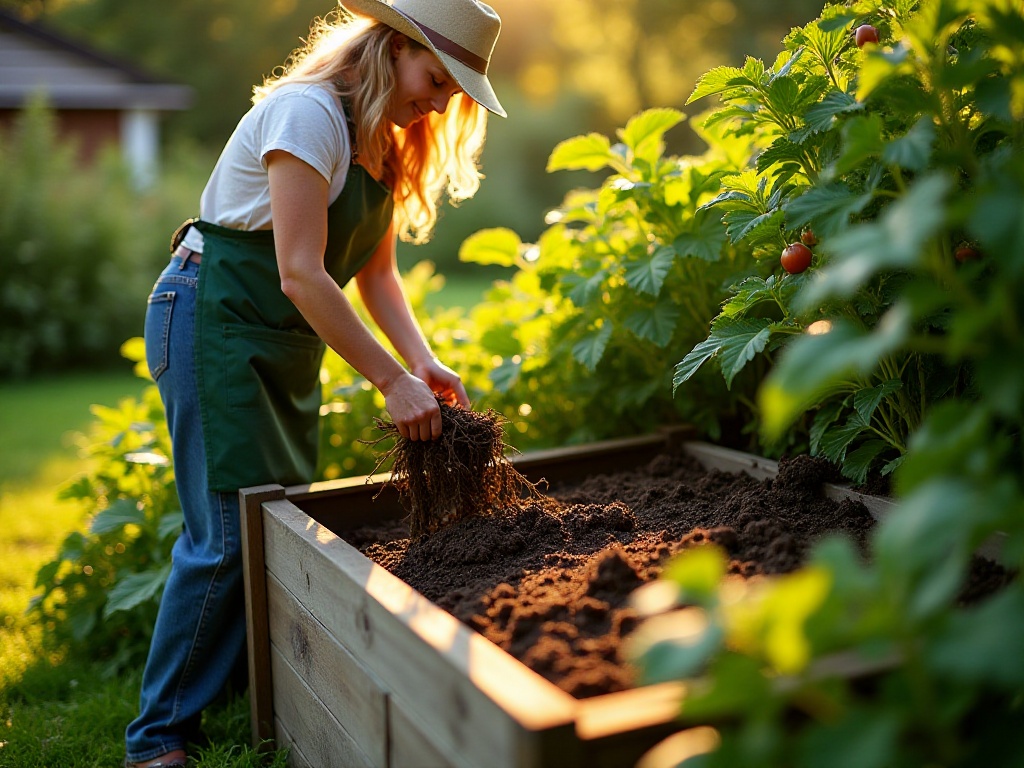
Creative Transformation
My proudest attempt has been the transformation of those glass jars. Initially, I simply cleaned them, removed the labels, and used them to store grains. Later, I began trying more interesting transformation projects:
Large coffee jars were transformed into stationery holders, particularly stylish after applying frosted paint; medium-sized jam jars became succulent planters with small holes drilled in the bottom, a layer of small stones added, and cute succulents planted - instantly becoming fresh desk decorations; small honey jars were transformed into vintage-style table lamps, paired with delicate LED light strips, creating a particularly cozy atmosphere at night.
These transformations sound simple but require technique. For instance, when cleaning glass jars, I first soak them in warm water to make labels easier to remove; before painting, the surface needs to be sanded for even paint coverage; when making planters, drainage must be carefully considered to prevent root rot.
What delights me most is that these transformed glass jars are not only practical but also particularly stylish. Every time friends visit, they're attracted by these unique storage solutions and ask where I bought them. When I tell them these are transformed from discarded glass jars, their jaws drop in amazement!
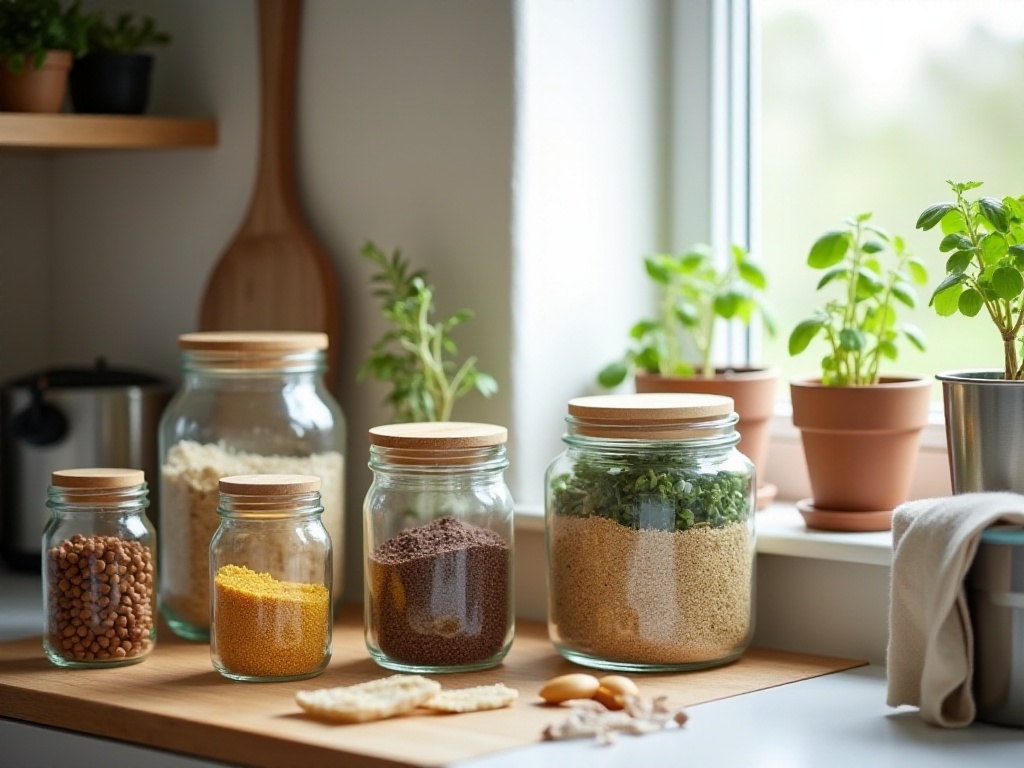
Results Sharing
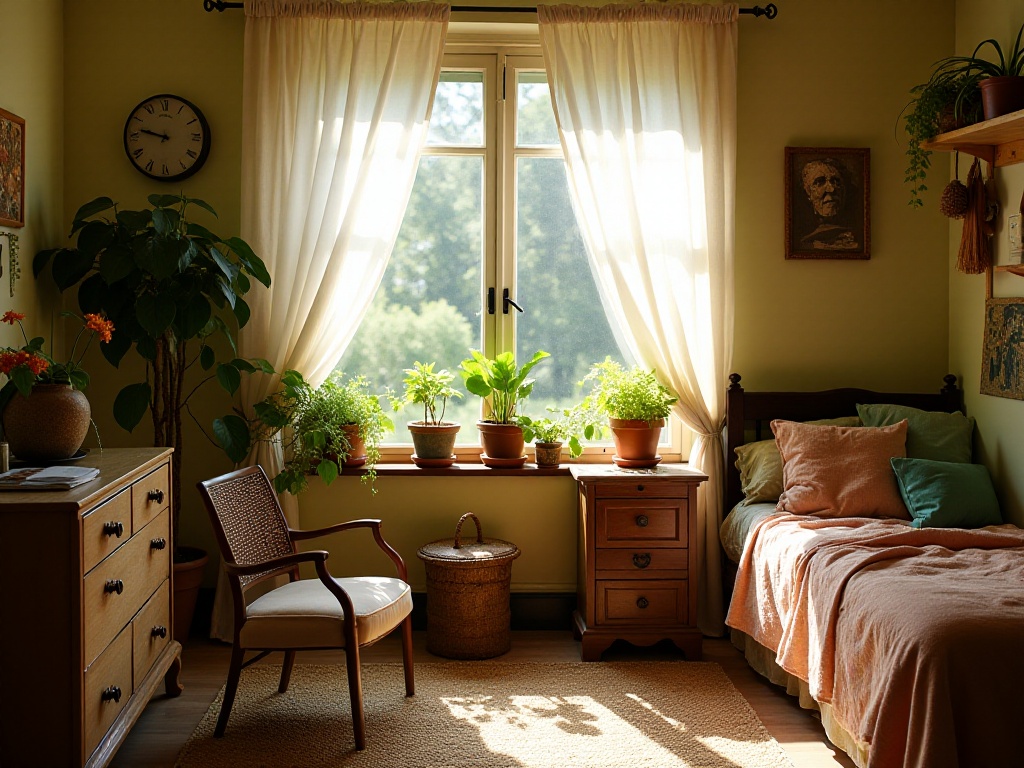
Data Results
After three months of zero-waste living, the results exceeded my expectations. First is the most obvious waste reduction - our household waste decreased by nearly 60%. Previously we had to take out trash 3-4 times a week; now 1-2 times is sufficient.
The economic benefits are also considerable. Through buying bulk goods, avoiding excessive packaging, and making my own cleaning agents (white vinegar and baking soda can handle most cleaning needs), my monthly household goods expenses decreased by about 300 yuan. That adds up to 3,600 yuan saved per year - quite a significant amount!
More importantly, these changes have actually improved my quality of life. The house is more organized and tidy, things are easier to find. Homemade cleaning agents contain no harsh chemicals, making them safer to use. The transformed storage containers are both practical and beautiful, filling the entire home with creative energy.
Life Insights
Zero-waste living has brought me more than just environmental protection and cost savings - it's a transformation in life attitude. When you start paying attention to your consumption behavior and examining the necessity of each item, you'll be surprised to discover that we actually need much less than we think.
Often, we shop out of impulse rather than necessity. Through this transformation, I've learned to ask myself before buying anything: do I really need this? How much value will it bring me? This kind of thinking has made my consumption more rational and life simpler and purer.
Additionally, this lifestyle has cultivated my creativity. When facing "waste" at home, I no longer simply choose to discard it but think about how to give it new value. While this process requires thought, the sense of achievement when seeing my creative works being actually used is irreplaceable.
Future Outlook
Looking back on these three months of zero-waste living, I deeply understand that change doesn't need to happen overnight - what's important is taking action. If you want to try zero-waste living, you can start with the simplest things:
Carry a reusable water bottle and refuse disposable cups; bring your own shopping bags to the supermarket; try making simple cleaning agents; give household waste items a chance at rebirth.
These small changes accumulate to create huge impact. Moreover, once these habits are formed, you'll find that zero-waste living isn't troublesome at all but can make life more organized and meaningful.
Can zero-waste living really improve quality of life? From my personal experience, the answer is definitely yes. It not only helped me save expenses but also made my life more relaxed and creative. Most importantly, knowing that I've contributed to environmental protection brings an invaluable sense of achievement.
So, if you also want to do something for yourself and the Earth, why not start today, beginning with one small change. I believe you'll also, like me, find plenty of rewards on this zero-waste journey!


